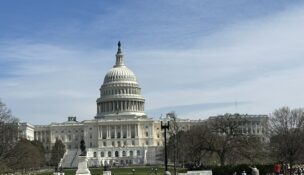HIPAA violation doesn't require suppression of evidence
By: dmc-admin//December 24, 2007//
Suppression is not the remedy for a violation of HIPAA, the Wisconsin Court of Appeals held on Dec. 19.
In 2006, Ellen T. Straehler was involved in an automobile accident, and was taken to the hospital. The officers had no probable cause to believe she was intoxicated.
However, a nurse at the hospital in-formed a detective investigating the accident that she and other hospital staff smelled alcohol coming from Straehler, and that Straehler told staff that she had consumed alcohol prior to the accident.
Based on a blood sample indicating Straehler’s BAC was .119, Straehler was charged with operating a motor vehicle while intoxicated as a second offense.
She moved to suppress the BAC results, arguing that the nurse’s disclosure violated HIPAA (the Health Insurance Portability and Accounting Act of 1996), and Wis. Stat. Sec. 146.82, but Waukesha County Circuit Court Judge Kathryn W. Foster denied the motion.
Straehler appealed, but the court of appeals affirmed in a decision by Judge Daniel P. Anderson.
HIPAA
The court assumed, without deciding, that the nurse’s disclosure violated HIPAA, but concluded that suppression was not the remedy.
The court noted that HIPAA is limited to “covered entities,” such as health care providers, and police officers are not included as a covered entity. Federal regulations expressly state that the law does not regulate the behavior of law enforcement officials.
In addition, HIPAA does not expressly provide that suppression of evidence is an available remedy for violation. The court cited numerous precedents establishing that suppression is warranted only when evidence has been obtained in violation of a defendant’s constitutional rights or if a statute specifically provides for suppression as a remedy.
Because the nurse’s disclosures do not implicate the Fourth Amendment, suppression is not available as a remedy.
Suppression not required
The court also concluded that sec. 146.82 does not require suppression.
Like HIPAA, the chapter provides remedies for violation (in sec. 146.84), but those remedies do not include suppression.
Furthermore, State v. Thompson, 222 Wis.2d 179, 585 N.W.2d 905 (Ct.App.1998), limits the statute to “records” and interprets “records” narrowly.
The court in Thompson held the statute did not apply to an officer’s presence in an operating room, where he was able to confiscate bags of cocaine that were surgically removed from Thompson’s stomach.
Turning to the case at bar, the court concluded, “[The nurse’s] verbal statements based upon her observations are no more protected by Wis. Stat. Sec. 146.82 than the medical procedures at issue in Thompson.”
Accordingly, the court affirmed.
Legal News
- Wisconsin Attorney General asks Congress to expand reproductive health services
- Attorney General Kaul releases update at three-year anniversary of clergy and faith leader abuse initiative
- State Bar leaders remain deeply divided over special purpose trust
- Former Wisconsin college chancellor fired over porn career is fighting to keep his faculty post
- Pecker says he pledged to be Trump campaign’s ‘eyes and ears’ during 2016 race
- A conservative quest to limit diversity programs gains momentum in states
- Wisconsin prison inmate pleads not guilty to killing cellmate
- Waukesha man sentenced to 30 years for Sex Trafficking
- 12-year-old shot in Milwaukee Wednesday with ‘serious injuries’
- Milwaukee man convicted of laundering proceeds of business email compromise fraud schemes
- Giuliani, Meadows among 18 indicted in Arizona fake electors case
- Some State Bar diversity participants walk away from program
WLJ People
- Power 30 Personal Injury Attorneys – Russell Nicolet
- Power 30 Personal Injury Attorneys – Benjamin Nicolet
- Power 30 Personal Injury Attorneys – Dustin T. Woehl
- Power 30 Personal Injury Attorneys – Katherine Metzger
- Power 30 Personal Injury Attorneys – Joseph Ryan
- Power 30 Personal Injury Attorneys – James M. Ryan
- Power 30 Personal Injury Attorneys – Dana Wachs
- Power 30 Personal Injury Attorneys – Mark L. Thomsen
- Power 30 Personal Injury Attorneys – Matthew Lein
- Power 30 Personal Injury Attorneys – Jeffrey A. Pitman
- Power 30 Personal Injury Attorneys – William Pemberton
- Power 30 Personal Injury Attorneys – Howard S. Sicula











